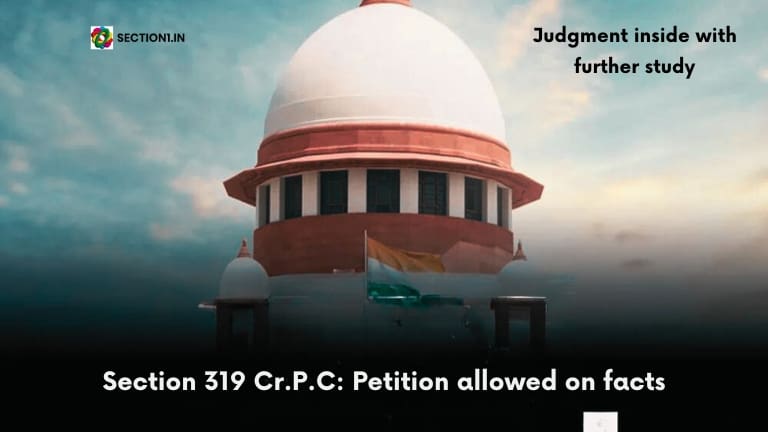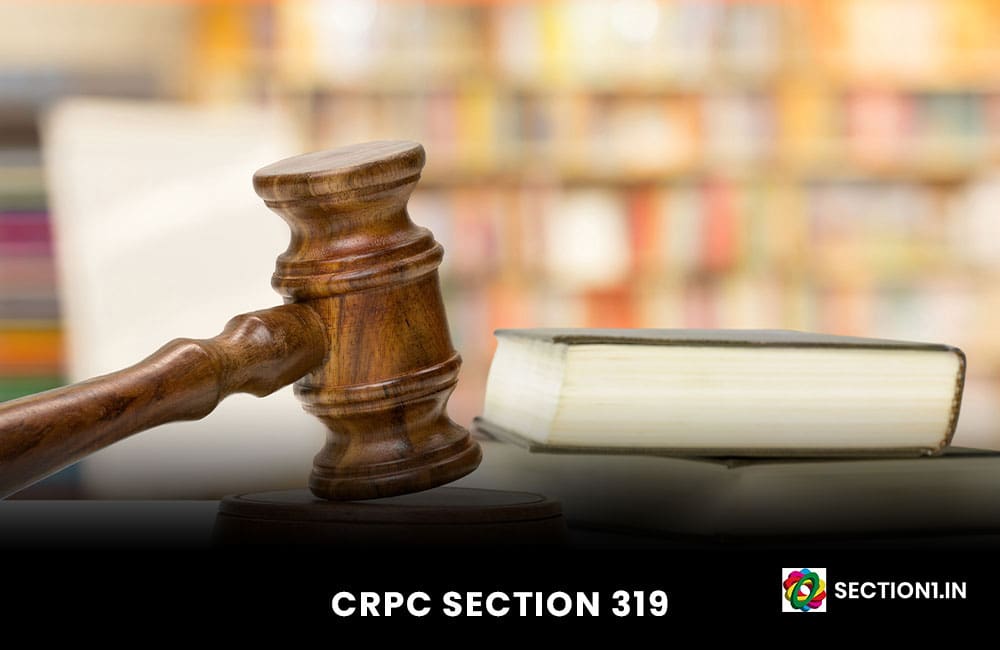1. This appeal, by special leave, takes exception to an order dated 1 st June, 2022 of the Allahabad High Court. The impugned order dismissed an appeal filed by the appellant under Section 14A(1) of the Scheduled Castes and Scheduled Tribes (Prevention of Atrocities Act, 1989 (hereafter ‘1989 Act’). Under challenge in the appeal was a summoning order dated 16th October, 2021 passed by the relevant Special Court under the 1989 Act, in exercise of power conferred on him by Section 319, Code of Criminal Procedure (hereafter, ‘Cr. PC’).
2. A First Information Report (hereafter ‘FIR’) came to be registered by the Khalilabad Police Station, District Sant Kabir Nagar, under Sections 419, 420, 323, 406 and 506, Indian Penal Code and 3(1)(r) & (s) of the 1989 Act on the basis of information furnished by the complainant. Accusations were levelled against (1) Dharmendra Nath Mishra (hereafter ‘Dharmendra’); (2) brother of Dharmendra; and (3) an ‘unknown person’ of having assaulted and abused the complainant and his wife, amounting to commission of offences punishable under the aforesaid provisions. Investigation of the FIR culminated in a charge-sheet under Section 173(2) of the Cr. PC being filed, wherein Dharmendra was shown as the sole accused. The Special Court constituted under the 1989 Act took cognisance of the offence and framed charges against Dharmendra, whereafter the trial commenced. In course thereof, the complainant and his wife deposed as PW-1 & PW-2 respectively. According to them, Dharmendra and the appellant together with an unknown person had assaulted them apart from hurling caste related abuses.
3. At this stage, the Special Court passed the order dated 16.10.2021 summoning the appellant for trial along with Dharmendra for offences punishable under Sections 323, 504 and 506, IPC and 3(1)(r) & (s) of the 1989 Act. The said order dated 16th October, 2021 was unsuccessfully challenged by the appellant before the High Court which, by its order dated 1st June, 2022, dismissed the appeal of the appellant under Section 14A(1) of the 1989 Act as noted above.
xxx
8. Having bestowed due consideration to the rival claims, we are of the view that any expression of ours while dealing with each and every point urged on behalf of the appellant could result in prejudgment; and thereby hinder a fair trial hence, adopting a cautious approach, we propose to restrict our consideration solely to the question as to whether the evidence adduced by the complainant and his wife in course of recording of their depositions did justify the Special Court to make the order it did.
9. Section 319, Cr. PC, which envisages a discretionary power, empowers the court holding a trial to proceed against any person not shown or mentioned as an accused if it appears from the evidence that such person has committed a crime for which he ought to be tried together with the accused who is facing trial. Such power can be exercised by the court qua a person who is not named in the FIR, or named in the FIR but not shown as an accused in the charge-sheet. Therefore, what is essential for exercise of the power under section 319, Cr. PC is that the evidence on record must show the involvement of a person in the commission of a crime and that the said person, who has not been arraigned as an accused, should face trial together with the accused already arraigned. However, the court holding a trial, if it intends to exercise power conferred by section 319, Cr. PC, must not act mechanically merely on the ground that some evidence has come on record implicating the person sought to be summoned; its satisfaction preceding the order thereunder must be more than prima facie as formed at the stage of a charge being framed and short of satisfaction to an extent that the evidence, if unrebutted, would lead to conviction.
10. In the present case, the FIR disclosed offences having been committed by Dharmendra, his brother and an unknown person. Both the complainant and his wife, while testifying before the court, described the manner of assault on the former inflicted by Dharmendra and the appellant and the utterances used by Dharmendra and the appellant, inter alia, touching the caste of the complainant and his wife. At least, on this point, prima facie there appears to be no contradiction at all. The FIR in this case is not such where one finds complete absence of any reference to the brother of Dharmendra who had joined Dharmendra in assaulting and abusing the complainant or that the allegations are entirely Dharmendra centric with none else playing any role. It is not that involvement of Dharmendra’s brother in the crime is being referred to for the first time in the court. True it is, the appellant was not named in the FIR; but, that by itself, cannot be held to be decisive. Once it is conceded that the appellant is a sibling of Dharmendra and he is named as one of the assailants, the material for forming the requisite satisfaction cannot be said to be non-existent. For the purpose of passing an order under section 319, Cr. PC, it is sufficient to form a satisfaction of the nature indicated in paragraph 106 of the decision in Hardeep Singh (supra). We are satisfied, on facts and in the circumstances, that the Special Court formed the requisite satisfaction prior to summoning the appellant to face trial with Dharmendra.
PARTY: JITENDRA NATH MISHRA VS. STATE OF U.P. & ANR – CRIMINAL APPEAL NO. 978 OF 2022 – 2nd JUNE, 2023
https://main.sci.gov.in/supremecourt/2022/19186/19186_2022_6_1501_44653_Judgement_02-Jun-2023.pdf
Jitendra Nath Mishra vs. State of U.P





